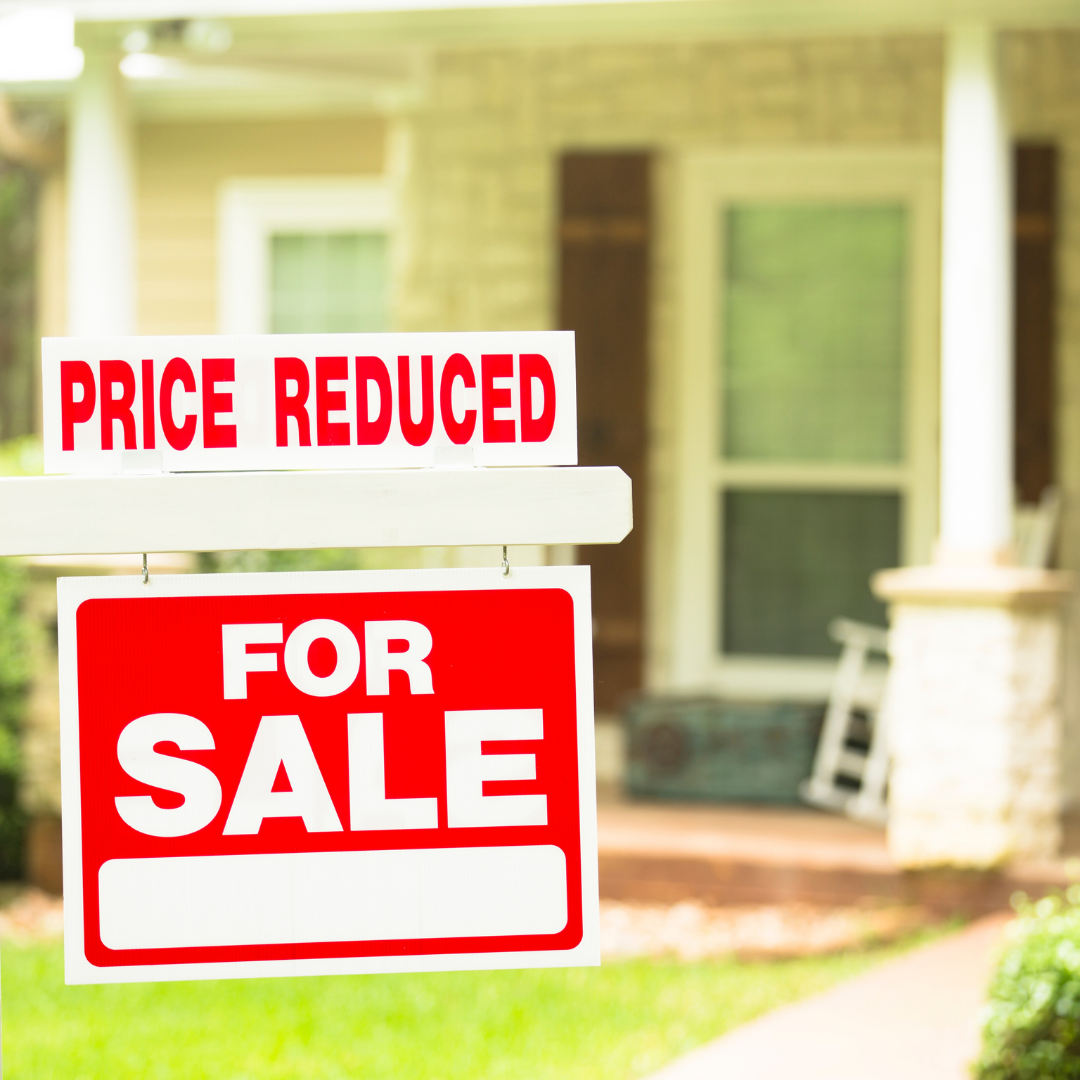
When it comes time to sell a home, most people want the property to sell quickly for the highest possible return. Setting the correct listing price is the most important step in reaching this goal. Price a property too low and it might sell quickly, but you could pocket less profit. Set it too high and you run the risk of pricing yourself out of the market.
Why overpricing a home is risky
Some sellers want to list their home at an inflated value, believing that they can always lower the price down the road if needed. But this can be a risky strategy. New listings generally get the greatest exposure in the first two-to-four weeks on the market, so setting a realistic price from day one is critical. If a home is priced too high, your strongest pool of prospective buyers is eliminated because they think it’s out of their price range. Conversely, buyers who can afford it will compare it to other homes that have been fairly priced and decide that they can get more home for their money elsewhere.
Once it has been decided to reduce the price, you’ve unnecessarily lost time and money. Your strongest prospective buyers may have found another home, while the over-inflated price could result in a negative impression amongst agents and buyers who are still in the market. Not to mention, reengaging buyers after those first critical few weeks can be very challenging. As the saying goes, “time is money”; so the longer a home is on the market, the lower the selling price will likely be in relation to the initial listing price.
Setting a home price too high has other costs
When a home languishes on the market, the seller loses in a number of ways. Each month the home goes unsold is another month of costs to the owner in mortgage payments, taxes, and maintenance—expenses that are not recovered when the home is sold. Furthermore, until the house is sold, the owner is on hold and can’t move forward with whatever plans prompted the decision to sell. If the seller is still living in the home, it can also be fatiguing to keep the property in ready-to-show condition month after month.
How to set the right price for a home
It’s not easy to be objective about your own home. That’s why it’s best to have a real estate professional work with you to set a reasonable price. According to a study done by the National Association of REALTORS®, homes that were sold using a real estate agent netted an average of $25,000 more than those without agent representation.
There are a number of factors that your agent will consider when determining a sales price for your home. Here’s a quick overview.
-
- Comparable sales. One of the best guides to pricing your home is knowing what recent buyers were willing to pay for similar homes in your area. So, one of the first things your agent will do is prepare a Comparative Market Analysis (CMA). A CMA is a written analysis of houses in the community that are currently for sale, homes that have recently sold, and homes that were offered for sale but did not sell. While no two homes are identical, the report highlights only homes that most resemble yours. The CMA will include details about these properties, such as the number of bedrooms and baths, square footage, noteworthy amenities—and the listing price and sale price. The report will also include the Days on Market (DOM) for each property, which is the number of days it took to sell the home once it was listed. The CMA helps determine a price range that will be appropriate for your home.
-
- Unique property features. Since no two homes are exactly alike, looking at comparable sales is just one part of the equation. Many properties have distinctive features that add to their overall value when it comes to pricing. The importance buyers place on different features can vary by region, but examples might include a particularly pleasing view, artisan-quality interior detailing, outdoor entertaining space, or exceptional landscaping.
-
- Current market conditions. The real estate market is constantly fluctuating, and those cycles have a direct impact on pricing. Here are some of the market conditions an agent may consider when evaluating how to price a home:
-
- Are home prices trending up or down?
-
- How quickly are homes selling?
-
- Is the inventory of homes on the market tight or plentiful?
-
- Are interest rates attractive?
-
- How is the overall economy performing? Is the local job market strong or in decline?
-
- Current market conditions. The real estate market is constantly fluctuating, and those cycles have a direct impact on pricing. Here are some of the market conditions an agent may consider when evaluating how to price a home:
Other factors that can impact pricing include the condition of the home, seasonal influences (i.e. summer versus winter), condition of surrounding neighborhood, local amenities, and how quickly the seller needs to move.
There are a lot of factors that go into setting a home’s sales price, but it’s by far the most critical step in the overall selling process. The best course of action is to look to your real estate agent for guidance; they have the experience and market knowledge that will help you achieve your goals and reach a desired outcome that best fits your individual needs.
 Facebook
Facebook
 X
X
 Pinterest
Pinterest
 Copy Link
Copy Link










 As the old saying goes, you only have one chance to make a first impression. If you’re selling your home, it’s true, except that there are several impressions to be made, and each one might have its own effect on the unique tastes of a prospective buyer. I’ve worked with scores of buyers, witnessed hundreds of showings, and I can summarize that experience down this: a tidy and well maintained home, priced right, listed with professional photographs, enhanced curb appeal and onsite visual appeal will sell fastest. We all know first impressions are very important, but the lasting impressions are the ones that sell your home. It’s not easy, but if you can detach a little and look at your home from a buyer’s perspective, the answers to selling it quickly may become obvious to you.
As the old saying goes, you only have one chance to make a first impression. If you’re selling your home, it’s true, except that there are several impressions to be made, and each one might have its own effect on the unique tastes of a prospective buyer. I’ve worked with scores of buyers, witnessed hundreds of showings, and I can summarize that experience down this: a tidy and well maintained home, priced right, listed with professional photographs, enhanced curb appeal and onsite visual appeal will sell fastest. We all know first impressions are very important, but the lasting impressions are the ones that sell your home. It’s not easy, but if you can detach a little and look at your home from a buyer’s perspective, the answers to selling it quickly may become obvious to you.
